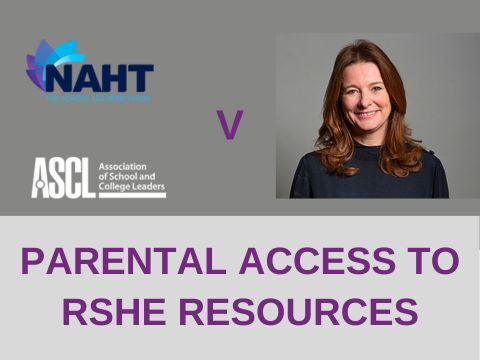

Sex and Relationships Education – have the mandarins got it wrong?
The aim of all sex and relationships education is to protect children and, so far as necessary, inform children, arming them against sexual coercion and enabling them to form healthy, non-abusive relationships. Yet far from protecting children, the most obvious fruits of government policy up to now has been their premature sexualisation, evidenced by such things as rising numbers of sexual assaults in schools (some involving children as young as five); massive problems from sexting and cyber bullying; the highest level teenager pregnancy and abortion rates in Europe; and, easily most worrying, what doctors are calling epidemic level diagnoses of STIs amongst teenagers.
To put the last into some sort of context – there are currently around 29 diagnosable STIs, a huge increase on the two identified and longstanding diseases (syphilis and gonorrhea) of the fifties, sixties and early seventies.
At around that time, however, two things happened: first, the so-called sexual revolution, made possible by easy access to contraception and abortion, which for the first time allowed women to have sex outside marriage without fear of pregnancy; and, second, the explosion of gay rights.
For better or worse, a new age had dawned, and promiscuity has increasingly become the ‘norm’, affecting all of us. But most of all, it has affected teenagers, who jumped on sexual liberation as the new counter-cultural badge of teenage revolution. There were inevitable consequences. The teenage pregnancy rate shot up almost overnight, with cases of girls as young as thirteen giving birth or, more commonly, having an abortion – and, though not immediately recognizable as the problem it was to become, a whole new range of sexual infections began to be seen in sexual health clinics.
To combat these worrying developments, it was decided by policymakers that children needed to be taught about sex so that they could take precautions and be kept ‘safe’. Note, the emphasis was not on moderating behaviour, which would have been sensible, but on avoiding unwanted consequences.
With the benefit of hindsight, the result was entirely predictable. Far from protecting children, the increased emphasis on teaching the mechanics of sex and how to avoid pregnancy, devoid of any kind of moral frame, only served to encourage early experimentation – which soon became extended to include behaviours and practices previously regarded as ‘unusual’. For example, oral and anal sex have today become completely normalized – indeed, there are reports of young girls opting for anal sex as a means of avoiding pregnancy – but this is a recent development, and both practices carry severe risks to health: as attested by Michael Douglas. In 2013 the film star revealed that his stage 4 throat cancer was the result of an HPV infection that he had got from oral sex. In recent years the number of people suffering this form of cancer has increased dramatically and, though there are several possible causes, it is estimated that up to 70% of all such cancers are related to HPV, the virus known for causing cervical and anal cancer.
These are the kinds of risks to which we are exposing our children, yet for both boys and girls, the misleading message that they can have safe sex without consequences has made it increasingly difficult to say ‘no’. The unfortunate result is that for many, ‘sex’ has become the normal and accepted way to round off the evening. Nothing very special – just what you do.
It’s entirely true that in 2016 the number of recorded teenage pregnancies fell by 10% on the previous year – a development welcomed by all (http://www.independent.co.uk/life-style/health-and-families/health-news/teenage-pregnancy-rates-record-low-england-wales-fall-halve-last-seven-years-a7643416.html). However, this wasn’t due to ‘restraint’, but to the more widespread use of effective contraceptives, including implants and the morning after pill, which some young women appear to be taking on a regular basis – also worrying, because the long-term health effects are unknown, though ectopic pregnancy, infertility and development of certain cancers are already listed as possible long-term side effects.
Yet while pregnancy numbers may have fallen, STI rates have risen astronomically. In 2105, 15 to 24-year-olds accounted for 62% of those diagnosed with chlamydia, 52% with gonorrhoea, 51% with genital warts, and 41% with genital herpes ( http://www.fpa.org.uk/factsheets/sexually-transmitted-infections). At the same time, figures produced by Public Health England for the period 2012-2015 suggested a 76% increase in syphilis, while The Terence Higgins Trust reported that the UK has one of the highest rates of HIV diagnosis in Western Europe, with 10% of all new diagnoses affecting young people between the ages of 15-24 (http://www.tht.org.uk/our-charity/Facts-and-statistics-about-HIV/Europe).
These figures are a major cause for concern. Young people are at particular and heightened risk of contracting all these infections, many of which remain untreatable, while some, such as gonorrhoea, are becoming increasingly antibiotic resistant. All of which means there is every danger that a young person contracting one or more of these infections will have them for life.
We’re not telling them the full story!
Current SRE programmes tell children that if they’ll only use a condom they’ll be safe. This is misleading and dangerous. Condoms never provide complete protection and, contrary to what is said, some STIs are transmitted not by the exchange of bodily fluids, but by skin-to-skin contact, in which case condoms provide absolutely no protection at all. For example, HPV, genital herpes, syphilis, pubic lice, and molluscum contagium. STIs are also a major cause of adult infertility.
As a part of SRE, children need to be given the full facts – which means they need to know the risks they’ll be running from having multiple sexual partners, and what the long-term effects of contracting these infections might be.
Please sign our petition calling for all Sex and Relationships Education in the UK to carry full and comprehensive warning of the health risks attaching to promiscuity.
Yes, children have a right to choose for themselves what they want to do. But not giving them the full facts is abuse. Children need to be informed and warned.
Lynda Rose, – CEO VfJUK






